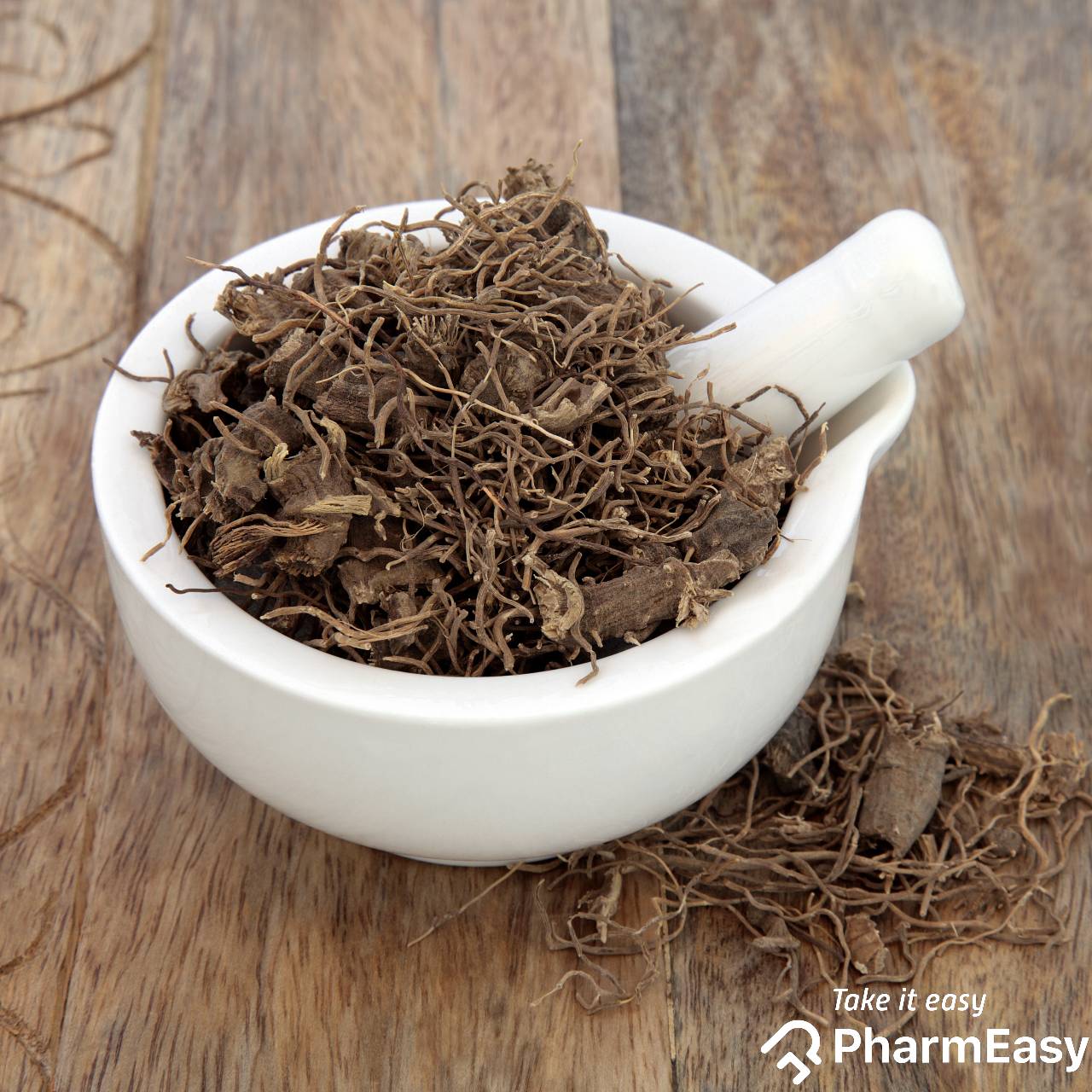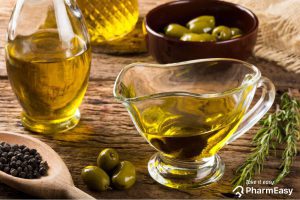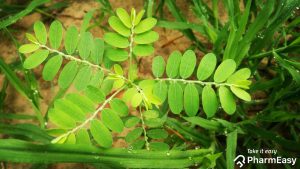Table of Contents
Introduction:
Actaea racemosa is the botanical name for black cohosh, which belongs to the Ranunculaceae family. It is a perennial herb with a smooth erect stem and can grow up to eight feet tall. There is usually only one compound leaf per plant, and the leaves have a glossy dark green look. Black snakeroot, tall bugbane, black bugbane, macrotys, battle weed, columbine-leaved leontice, cordate rattle top, fake cohosh, papoose root are famous alternate names for black cohosh. Throughout the summer, feathery white flowers appear in an elongated raceme that can reach two feet in length. The flowers are notable for their striking beauty and their bittersweet smell. The fruit consists of an oval-shaped follicle. The rootstock is a thick, branching black rhizome with a mass of rootlets.1
Black cohosh is found in the north-eastern forests of North America, as well as Alabama in the south, Eastern Kansas in the west, and northern Canada. While it may be abundant locally, the species has been declining in recent decades as a result of habitat degradation and over-harvesting.1

Conditions like rheumatism, sore throats, malaria, colds, and problems linked with childbirth have all traditionally been treated using the root and rhizome of black cohosh. Black cohosh is currently being utilised to manage menopausal symptoms.3
Chemical Constituents of Black Cohosh:
Rhizomes of black cohosh have biological effects due to active chemicals such as triterpene glycosides, phenyl propan derivatives such as isoferulic acid, and quinolizidine alkaloids such as cytisine and methylcytisine. Phenolic compounds, chromones, triterpenoids, and nitrogen-containing components are well-known constituents.2 Tannins, resins, fatty acids, starch, and sugars are among the other ingredients present in black cohosh.1
Therapeutic Uses of Black cohosh:
Black cohosh has various therapeutic uses due to its properties, such as:
- Anti-rheumatism
- Liver-protective
- Analgesic (pain-killing)
- Anti-inflammatory
- Anti-epileptic
- Anti-asthmatic
- Anti-ulcer
- Antioxidant1
- Antidepressant
- Anti-diabetic2
- Anti-allergic
- Anti-osteoporotic3
Also Read: Behada: Uses, Benefits, Side Effects & More!
Benefits of Black Cohosh:
1. Benefits of Black Cohosh for Menopause:
It has been reported that black cohosh has direct estrogenic activity; it is extensively used by menopausal women as it has properties similar to estrogen, such as alleviating hot flashes, reducing depression, and thus protecting against bone loss.3
According to the literature, phytoestrogen, a component found in black cohosh extract, is responsible for estrogenic activity. As a result, it is possible to establish that black cohosh extract is a selective estrogen receptor modulator.3
Black cohosh extract contains neurotransmitter-like chemicals that are beneficial for the symptomatic alleviation of postmenopausal syndrome. By binding to serotonergic receptors in the hypothalamus, it is involved in the thermoregulation mechanism (temperature regulation). As a result, black cohosh extract reduces postmenopausal hot flashes through such a thermoregulation mechanism.3
2. Benefits of Black Cohosh for Bone:
The extract of black cohosh has also been suggested to help with postmenopausal osteoporosis. The bone structure was maintained by preventing bone loss and lowering bone reabsorption in an osteoporosis rat model.3
According to one study, the triterpenoids in black cohosh prevented osteoclastic bone resorption in an animal model by decreasing osteoclast-like cells’ production and their resorbing activity, therefore boosting bone mineral density.3
The glycoside (actein) protects the bone by preventing oxidative damage to osteoblasts in osteoporotic patients, and deoxyactein causes a significant increase in cell growth, collagen content, alkaline phosphatase action, and mineralisation in the cells, thus protecting bone density.3
3. Benefits of Black Cohosh for Cancer:
According to laboratory studies, black cohosh extracts have been shown to inhibit the proliferation of both estrogen-positive and estrogen-negative human breast cancer cells.1
Black cohosh extract’s cytotoxic and apoptotic (cell self-destruction) effect was observed on both androgen-dependent and independent prostate cancer cells.1
Another study that looked at the effects of black cohosh extract and its main component, triterpene glycoside (actein), on cell development and steroid hormone metabolism in human breast cancer cell lines found that it did not increase cell proliferation or have any effect on estrogen concentration. Alternatively, they increased androgen production to help adult women with menopausal symptoms.3
4. Benefits of Black Cohosh for Allergy:
Black cohosh extract has been shown to inhibit the anaphylaxis reaction (an acute and severe allergic reaction to an antigen) induced by immunoglobulin E. It also inhibits the cytokines mRNA, suggesting its anti-allergic effect.3
5. Benefits of Black Cohosh for the Brain:
The extract of black cohosh rhizome has a kind of pain-killing effect in rats by acting on the opiate receptor.1 According to animal studies, the extract of black cohosh also has antidepressant action.2
6. Benefits of Black Cohosh for Diabetes:
Black cohosh extract has anti-diabetic properties by activating the protein kinase enzyme. In diabetic mice, the black cohosh extracts significantly lowered body weight, increased glucose metabolism, and improved insulin sensitivity.2
7. Benefits of Black Cohosh for Inflammation:
The extract of black cohosh rhizomes exerted anti-inflammatory action on rats. Interleukin levels and neutrophils in the bronchoalveolar lavage process are reduced when ferulic acid and isoferulic acid is administered to virus-infected mice.2
How to Use Black Cohosh?
Black cohosh can be used in the following ways:
- Dried rhizome
- Dried root
- Roottincture
- Rhizometincture
- Rhizome extract
- Root extract
- Rhizome decoction1
Also Read: Alsi (Flax Seeds): Uses, Benefits & Side Effects
Side Effects of Black Cohosh:
Some of the side effects noted with the use of black cohosh are:
- Inflammation of gastric and intestinal mucosa
- Nausea and vomiting
- Muscle damage
- Altered mental status
- Hyponatremia (low blood sodium level)
- Lung tumours
- Increase in the blood levels of creatinine phosphokinase and lactate dehydrogenase2
Precautions to Take With Black Cohosh:
According to the safety studies of black cohosh on pregnant and breastfeeding women, black cohosh usage is contraindicated during pregnancy and lactation as it may cause fetal abortion..2 Therefore, it should only be taken under the supervision of a physician. No research has been done on the safety studies of black cohosh in children.
Interactions With Other Drugs:
- Concomitant use of black cohosh with azathioprine or cyclosporine decreases immunosuppressive drugs’ effect and results in rapid rejection of the transplanted organ.2
- Black cohosh affects the vagus nerve, causing hypotension and aggravating the effects of sedative medicines and general anaesthetic drugs. As a result, two weeks before any surgery, black cohosh should be avoided.2
- When black cohosh is combined with anti-hypertensive medicines, the effects of these drugs may be amplified, and their concurrent use should be prohibited.2
- When black cohosh and tamoxifen are used together, their effects may be increased.2
- When black cohosh is combined with iron products, the tannins in the plant can interact with the iron and produce insoluble complexes. So, it should be taken at least two hours apart if you are taking iron supplements.2
Also Read: Vasavaleha – Benefits, Side Effects, Precautions & More!
Frequently Asked Questions:
1. What is black cohosh?
It is a perennial herb, botanically known as Actaea racemosa, belonging to the Ranunculaceae family.1
2. What are the benefits of black cohosh?
Black cohosh is used for the management of rheumatism, menstruation disorders, dropsy (tissue swelling), lung problems, cough, liver problems, sore throat, pain, inflammation, backache, insomnia, snakebite, convulsions, fits, epilepsy, nervous excitability, asthma, delirium, neuralgia (nerve pain), ulcers, scrofula, smallpox, cholera, and measles.1
3. Is black cohosh good for menopause?
Menopausal women commonly use black cohosh due to its estrogenic activity. It has effects similar to estrogens, such as the relief of hot flashes, the reduction of depression, and the potential to protect against bone loss.3
4. How to use black cohosh?
Black cohosh is used in the form of dried rhizome,dried root, roottincture,,rhizometincture,rhizome extract,, root extract,, and rhizome decoction.1
5. Can black cohosh be used during pregnancy and breastfeeding?
No, black cohosh usage is contraindicated during pregnancy and lactation as it may cause fetal abortion.2
6. What are the side effects of black cohosh?
Black cohosh’s side effects are inflammation of gastric and intestinal mucosa,,nausea and vomiting,muscle damage,, altered mental status,, hyponatremia, and lung tumours.2
7. Is black cohosh safe?
Yes, it is safe at the prescribed level exceptforpregnant and breastfeeding women.2
8. Does black cohosh increase fertility?
Yes, black cohosh increases fertility by balancing hormones.1
9. What are the common names of black cohosh?
Black snakeroot, tall bugbane, black bugbane, macrotys, battle weed, columbine-leaved leontice, cordate rattle top, fake cohosh, papoose root are the common names of black cohosh.1
10. Can black cohosh cause hot flashes?
No, black cohosh reduces the hot flashes. It binds to serotonin receptors in the hypothalamus and reduces postmenopausal hot flashes through this thermoregulation mechanism.3
Also Read: Karisalankanni – Uses, Benefits, Side effects and More!
References:
- Pengelly A and Bennett K. Appalachian plant monographs. Black cohosh Actaea racemosa L. 2012; 1-40. Available at: https://unitedplantsavers.org/wp-content/uploads/2013/06/Final-Reviewed-Black-Cohosh.pdf
- Salari S, Amiri MS, Ramezani M, Moghadam AT, Elyasi S, Sahebkar A, et al. Ethnobotany, phytochemistry, traditional and modern uses of Actaea racemosa L. (Black cohosh): a review. Pharmacological Properties of Plant-Derived Natural Products and Implications for Human Health. 2021: 403-449. Available at: https://www.researchgate.net/publication/350931576_Ethnobotany_Phytochemistry_Traditional_and_Modern_Uses_of_Actaea_racemosa_L_Black_cohosh_A_Review
- Mohapatra S, Iqubal A, Ansari MJ, Jan B, Zahiruddin S, Mirza MA, et al. Benefits of Black Cohosh (Cimicifuga racemosa) for Women Health: An Up-Close and In-Depth Review. Pharmaceuticals. 2022; 15(3): 278. Available at: https://www.mdpi.com/1424-8247/15/3/278
Disclaimer: The information provided here is for educational/awareness purposes only and is not intended to be a substitute for medical treatment by a healthcare professional and should not be relied upon to diagnose or treat any medical condition. The reader should consult a registered medical practitioner to determine the appropriateness of the information and before consuming any medication. PharmEasy does not provide any guarantee or warranty (express or implied) regarding the accuracy, adequacy, completeness, legality, reliability or usefulness of the information; and disclaims any liability arising thereof.
Links and product recommendations in the information provided here are advertisements of third-party products available on the website. PharmEasy does not make any representation on the accuracy or suitability of such products/services. Advertisements do not influence the editorial decisions or content. The information in this blog is subject to change without notice. The authors and administrators reserve the right to modify, add, or remove content without notification. It is your responsibility to review this disclaimer regularly for any changes.



 By
By 










Comments